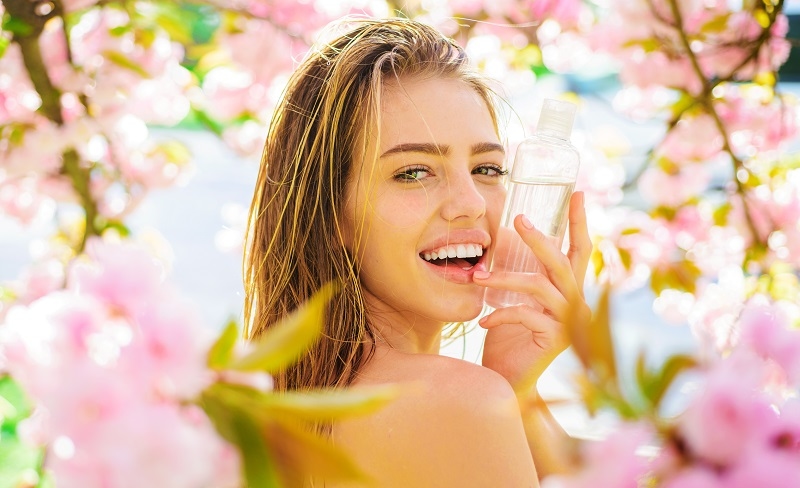
The clean beauty movement has reshaped the perception of skincare and cosmetic products; it is no longer simply about looking good but about feeling confident and safe about everything you apply to your skin. Natural beauty products and sustainable cosmetic products focused on health, safety, and environmental considerations have gained importance. As consumers become aware of the potential danger that harmful synthetic ingredients may elicit, non-toxic beauty and eco-friendly skincare have become a hallmark of this global movement.
In this article, we will explore what the clean beauty movement is all about, its significance, and how to incorporate it into your own routine for healthier skin and a healthier planet.
The clean beauty lifestyle is not just a consumer trend. It encompasses transparency, accountability, and intentionality. At its core, clean beauty values both planet-saving and people-saving products. Clean is not necessarily equal to all-natural, but the ingredients must be clean. This ensures that products are non-toxic, cruelty-free, and sustainably sourced.
Clean beauty means:
Ultimately, it is about empowering consumers to educate themselves and make informed decisions about their purchases.
Clean beauty is a fast-moving trend, and an increasing number of consumers are becoming interested in natural products. They are now aware of what is applied to their skin, the largest organ, and the long-term impact it will have on their health.
Natural beauty products are produced using plant-based ingredients, botanical extracts, and essential oils. They do not use synthetic chemicals to care for the skin, which may help calm irritation and actually benefit the skin.
By purchasing natural beauty products, consumers are aligning with the primary purpose of the clean beauty movement: purity, safety, and sustainability.
The beauty industry is constantly evolving, and sustainable cosmetics are now a significant focus. Sustainability in the beauty industry encompasses more than just minimizing packaging; it includes every aspect of a product's life cycle, including ingredient choices, manufacturing, and consumer disposal.
Brands that embrace sustainability emphasize:
Consumers in the world of sustainable cosmetics are taking steps to reduce pollution while promoting a culture of mindful consumption. This aligns with the mission of the clean beauty movement, which combines ethics and beauty products.
Central to clean beauty is the concept of non-toxic beauty, which refers to products that are free from ingredients that may cause harm to humans and/or the environment. Think in terms of no parabens, phthalates, sulfates, synthetic fragrances, and potentially harmful chemicals.
Using non-toxic beauty products can help protect your skin and health while reducing your ecological impact. Non-toxic beauty products are the foundation for a safe and thoughtful beauty routine.
Here’s why choosing non-toxic beauty products is essential:
The clean beauty community has inspired consumers to be thoughtful about the clean and safe formulation of products they use on their bodies.
The clean beauty movement is rooted in clean ingredient standards, which enable people to understand what is safe, non-toxic, and environmentally friendly. In contrast to conventional brands, clean beauty brands are transparent in their compositions, so you know exactly what you're purchasing.
General clean ingredient principles are as follows:
Transparency is vital. Clean brands that adhere to clean ingredient principles will typically showcase complete ingredient listings, help educate consumers, and prioritize honesty over profit. This essential trust serves to reinforce the clean beauty community and responsible consumerism.

Sustainable skincare is a key part of the clean beauty trend, addressing environmental effects without compromising performance. This could encompass everything from packaging to production to the sustainability of water-based products.
Eco-friendly skincare practices may be:
Choosing to buy eco-friendly skincare is a way to advocate for the planet and provide your skin with gentle, natural products that are beneficial to both you and the environment. It's good for both you and the planet!
The clean beauty movement offers benefits for your skin, your health, and our planet. Here is what makes it worth it:
The transition to natural beauty and sustainable skincare is not just a trend; it is a health investment for yourself and the planet's well-being.
With so many companies claiming to be “clean,” it can feel daunting to navigate both ethical and sustainability claims. Here is how to recognize products that come from the clean beauty and skincare movement:
By being mindful, you can feel confident that the products you choose align with your values and support the mission behind sustainable beauty.
It is not necessary to be intimidated by establishing a clean beauty routine, as it can be pretty overwhelming. It is always better to replace one or two products at a time with a more sustainable one.
The simplest cleaning routine could consist of:
Over time, such minor things can impact your skin, health, and the planet.
There is no indication that the clean-beauty movement will stop. With an increasing awareness, the number of brands shifting to ethical practices, research, and higher levels of transparency is on the rise. It is also moving towards regenerative ingredients and circular, sustainable beauty innovation that will define the future of beauty.
Consumers can demand change. When you choose natural beauty products and opt for environmentally friendly skincare, you contribute to a cleaner, safer, and more ethical future for the industry.
The clean beauty movement represents a decisive shift toward mindful consumption, health-conscious choices, and environmental respect. By choosing natural beauty products, sustainable cosmetics, and eco-friendly skincare, you align your beauty routine with your values. With clean ingredient standards guiding the way, beauty becomes not just skin deep—it becomes a conscious lifestyle choice.
This content was created by AI